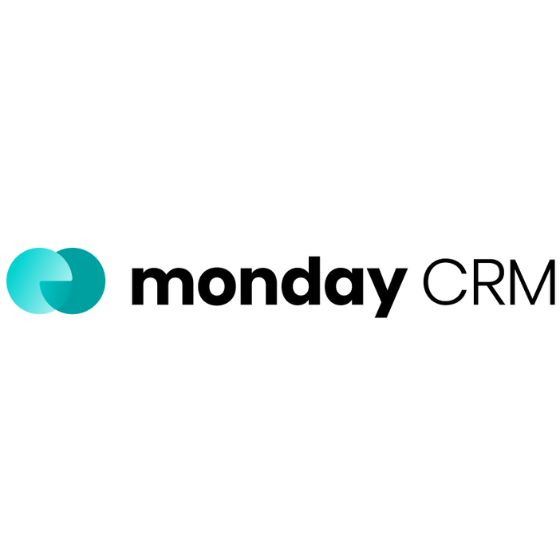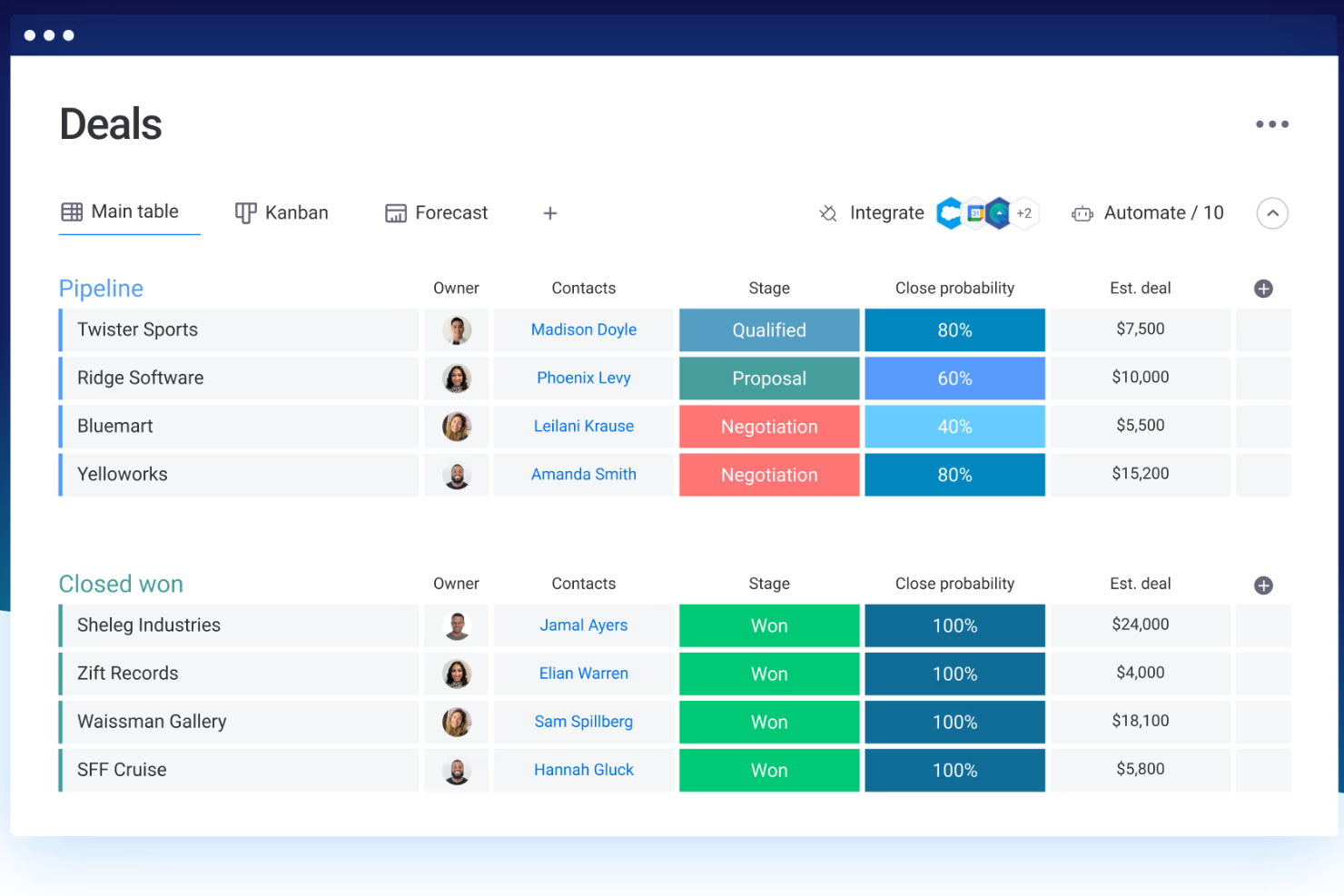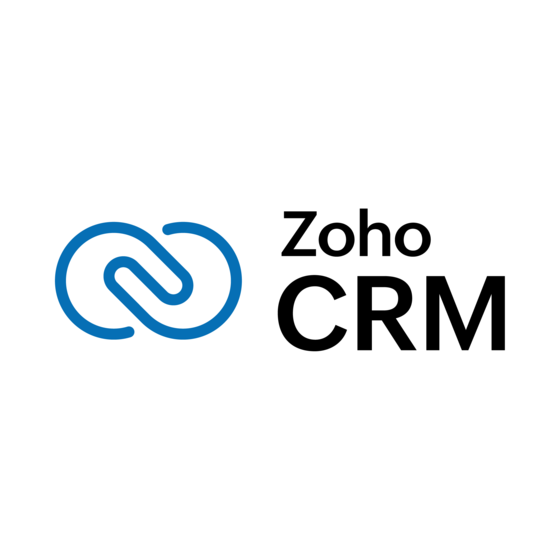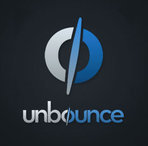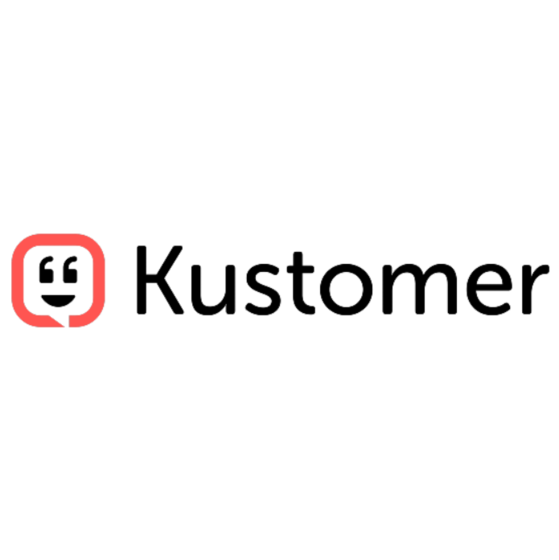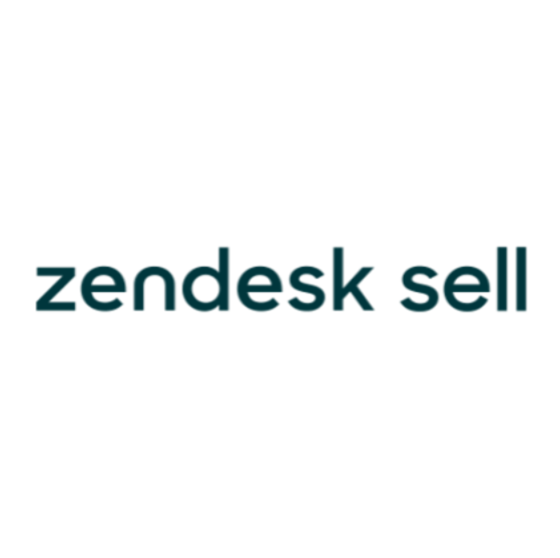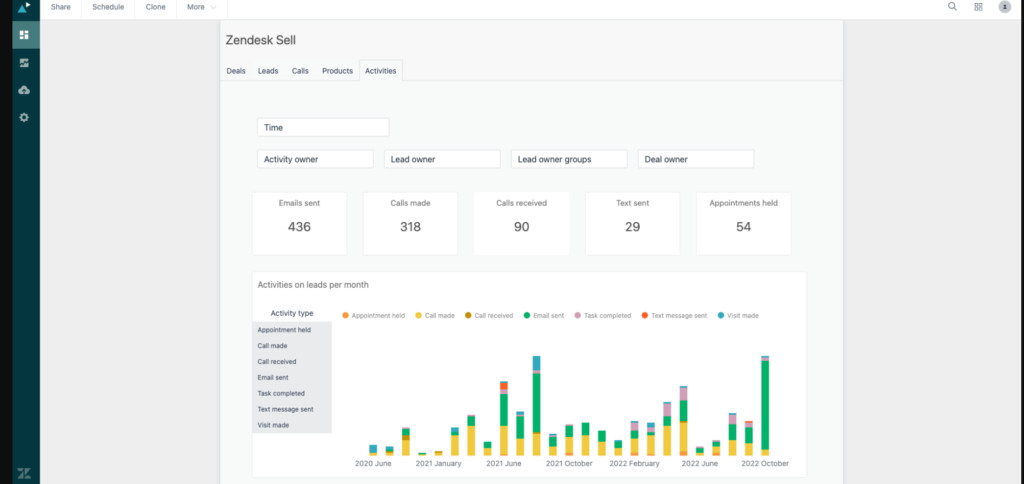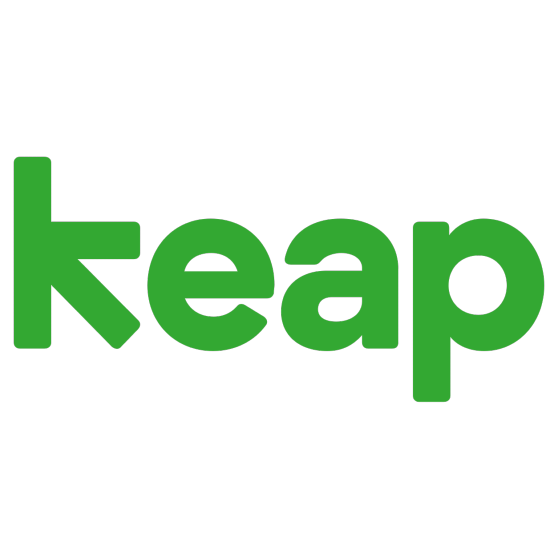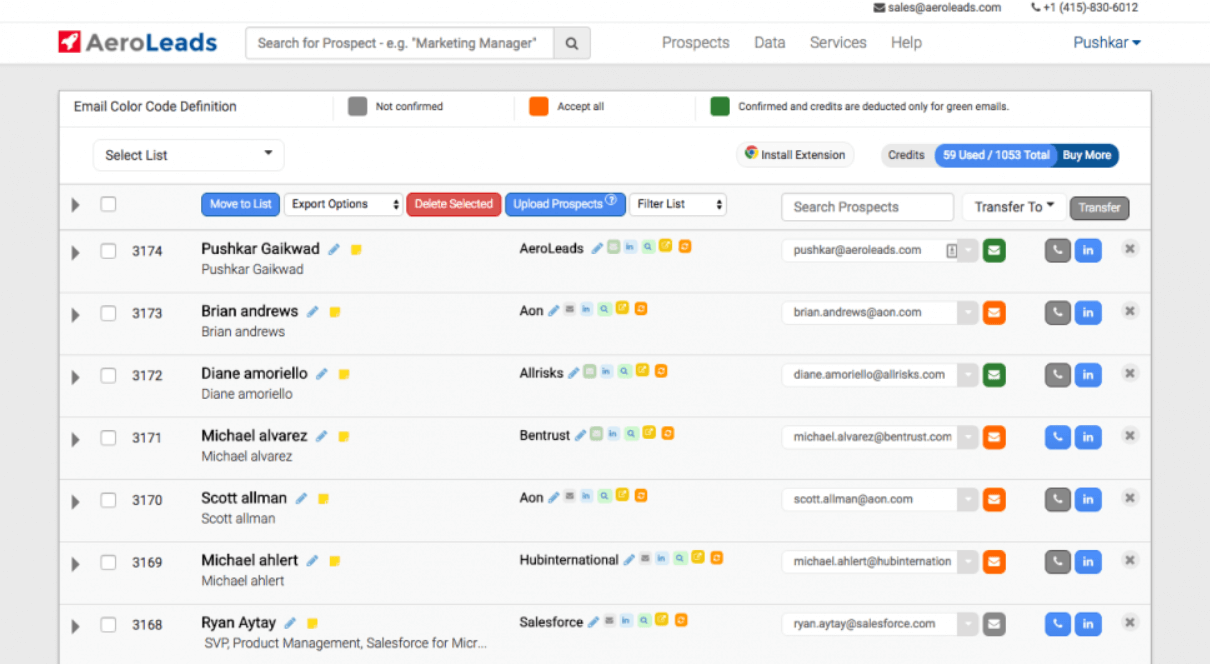10 Best Lead Management Software Shortlist
Here's my pick of the 10 best software from the 18 tools reviewed.
Our one-on-one guidance will help you find the perfect fit.
No one wants to hear “I never got a response” from a hot lead—especially when you’re under pressure to hit this quarter’s revenue targets. The reality is, even the most well-oiled sales teams can’t manually track every touchpoint, follow-up, and handoff with 100% precision. Leads get lost. Opportunities slip away. And revenue takes a hit.
Here’s the good news: lead management software exists to solve these problems. I’ve been in the trenches—balancing growth demands with operational complexity—and I know the difference the right software can make.
That’s why I’ve put together this list of the 18 best lead management software tools for 2025. Whether you’re looking to streamline follow-ups, automate lead routing, or get crystal-clear visibility into your pipeline, these tools are purpose-built to help you scale smarter. Let’s dig in.
Why Trust Our Lead Management Software Reviews?
We’ve been testing and reviewing lead management software since 2022. As revenue operation leaders ourselves, we know how critical and difficult it is to make the right decision when selecting software.
We invest in deep research to help our audience make better software purchasing decisions. We’ve tested more than 2,000 tools for different RevOps use cases and written over 1,000 comprehensive software reviews. Learn how we stay transparent & our lead management software review methodology.
Best Lead Management Software Reviews
Here’s a brief description of each lead management software that showcases each vendor’s best use case, their noteworthy features, and some pros and cons. I’ve also included screenshots to give you a snapshot of their user interface too.
Monday sales CRM is a customizable customer relationship management platform designed to centralize sales processes, client communication, and deal management. It stands out for its ability to create tailored workflows, which supports the claim that it is best suited for custom workflows, as businesses can adapt the CRM to their unique sales cycles and processes.
Why I picked Monday sales CRM: Monday.com shines in lead management by offering a centralized platform where teams can capture, track, and nurture leads effectively. Its strength lies in the ability to customize workflows to match the unique sales process of any team, ensuring leads are managed and progressed efficiently. Automation tools within the CRM streamline repetitive tasks such as lead assignment and follow-ups, freeing up time for personalized engagement.
The platform's collaborative nature enhances visibility across teams, ensuring everyone is updated on lead status and actions needed, fostering a cohesive approach to converting prospects into customers. With integrated analytics, monday.com provides actionable insights into lead behavior and pipeline health, aiding in informed decision-making and strategy optimization.
Standout Features and Integrations
Standout features: Visually intuitive sales pipelines that are not only easy to understand and manage but also come with integrated automation features. These automations can handle repetitive tasks, such as follow-up emails, task assignments, and lead scoring, without manual intervention. This integration of visual pipelines with automation is a distinctive feature that enhances efficiency and reduces the likelihood of human error.
Integrations include: Project management apps like Slack, Google Drive, Gmail, Google Calendar, Jira, GitHub, Trello, Dropbox, Typeform and many more, accessible through a paid plan with Zapier.
Pros and cons
Pros:
- Integrated automation tools
- Enables cross-functional collaboration
- Known for its intuitive and visually appealing interface
- Highly customizable workflows and dashboards
Cons:
- Sales CRM dosen't have a free plan
- Vast array of features can be overwhelming for new users
Pipedrive is a sales CRM and pipeline management software designed to help sales teams manage their sales processes and customer relationships.
Why I picked Pipedrive CRM: I picked Pipedrive because it offers an intuitive, visual interface for managing your sales pipeline and tracking leads through each stage of the sales process. The intuitive drag-and-drop interface lets sales teams seamlessly transition deals through various stages, offering a transparent, real-time perspective of their sales process.
Each sales stage can also be customized, allowing users to adapt the pipeline to their specific workflows. Furthermore, Pipedrive’s color-coded statuses and visual indicators simplify the prioritization of deals and highlight the most crucial actions.
Standout Features and Integrations
Standout features: Pipedrive offers lead management, in-depth reporting, and sales automation. It also includes features for lead generation, project management, and email marketing. Additionally, its AI-powered sales assistant can make recommendations while its open API allows for extensive customization options.
Integrations include HubSpot, JustCall, Mailchimp, Google Meet, Zoom, DocuSign, Trello, Monday.com, Zendesk, and Google Workspace.
Pros and cons
Pros:
- Easy-to-use interface
- Sales forecasting features
- Highly customizable pipelines and dashboards
Cons:
- AI sales assistant limited to higher-tier plans
- Initial setup and configuration can be complicated
Zoho CRM is a comprehensive customer relationship management software that offers a wide range of features to help businesses manage their sales, marketing, and customer support activities. It acts as a single repository to unify operations, making it suitable for businesses of all sizes and industries.
Why I picked Zoho CRM: I like that the software offers a comprehensive lead management system that includes features such as lead generation, scoring, distribution, nurturing, and analysis. It captures leads from various channels, including web forms, social media, and email, and integrates with platforms like Google Ads and Facebook to provide a complete picture of online ad spending and lead generation.
The system also offers advanced analytics to track lead status and conversion rates, ensuring that sales reps can focus on the most promising leads. Additionally, Zoho CRM provides AI-powered tools for lead enrichment., predictive analysis, and overall sales insights, enhancing the lead nurturing process.
Standout Features and Integrations
Standout features: Zoho CRM includes features like lead and deal prediction which uses AI to predict the likelihood of leads converting into deals and Zia, an AI assistant to help manage various CRM functions. It also offers workflow automation, omnichannel communication, approval processes, custom page layouts, analytics, and a CRM app.
Integrations include Google Workspace, Microsoft 365, RingCentral, Twilio, MailChimp, Facebook Ads Manager, Dropbox, PayPal, Adobe Sign, DocuSign, Typeform, Jotform, Trello, SurveyMonkey, Zapier, and other Zoho apps.
Pros and cons
Pros:
- Mobile app available for on the go access
- AI-powered assistant feature
- Extensive customization options
Cons:
- Set up can be time consuming
- Learning curve for new users
Callpage is a tool that helps businesses manage their outbound calling campaigns more effectively, with features like automated call tracking, lead scoring, and more.
Why I picked Callpage: Callpage offers an all-in-one solution for businesses to manage outbound lead management, which is exactly why I picked it for this use case. It provides an easy-to-use platform for automating and tracking all your calls. It's ideal for businesses that want to streamline their lead management processes and optimize their outbound sales efforts.
Standout Features and Integrations
Standout features: My favorite feature is Callpage’s simple widget that can be added to a business' website, allowing visitors to request a callback from a sales representative. Callpage also provides advanced call tracking and analytics features. This enables businesses to track the effectiveness of their outbound lead management efforts.
Integrations include Salesforce, Hubspot, Pipedrive, Zapier, and Google Analytics
Pros and cons
Pros:
- Built-in callback widget helps to capture leads directly from your website
- Advanced call tracking and reporting capabilities
- Easy-to-use platform with intuitive UI
Cons:
- Not suitable for businesses with complex sales processes
- Limited customizability options for the call widget
Drift is a conversational marketing platform that enables businesses to create personalized landing pages, chatbots, and other marketing assets that are tailored to the specific needs and interests of individual leads.
Why I picked Drift: I selected Drift because it offers a range of tools for targeted marketing, including chatbots, email marketing, and lead management. Drift's conversational AI technology allows businesses to engage with customers in a more human way, leading to higher conversion rates and improved customer satisfaction.
Standout Features and Integrations
Standout features: Features that differentiate Drift from its competitors include its conversational marketing capabilities. I was impressed by the fact that businesses can engage with website visitors in real-time via chatbots and personalized messaging. The platform offers lead capture and management tools, automated workflows, and integrations with popular CRM systems.
Integrations: include Salesforce CRM, Hubspot, Marketo, Zapier, Google Analytics, Slack, and Zendesk Support
Pros and cons
Pros:
- Advanced integrations with CRMs and marketing automation tools
- Easy to use and set up
- Powerful conversational marketing tools for personalized and targeted marketing
Cons:
- Steep learning curve for more complex features
- Higher price point compared to some other lead marketing software options
Unbounce is a landing page builder that makes it easy to create and optimize landing pages that are tailored to specific customer profiles, making it easier to convert leads into customers.
Why I picked Unbounce: I selected Unbounce because it helps businesses to easily create custom landing pages for their marketing campaigns without any coding knowledge. It’s range of templates makes it easy to create high-converting landing pages.
Standout Features and Integrations
Standout Features: I love Unbounce because of how customizable it can make your landing pages. The software features a drag-and-drop interface that allows you to customize each element of your landing page, and its A/B testing tools enable you to optimize your pages for maximum conversions.
Integrations: include Mailchimp, Salesforce CRM, Google Analytics, WordPress, Hubspot, and Zapier.
Pros and cons
Pros:
- The A/B testing tools make it easy to optimize landing pages for conversions
- The drag-and-drop editor is intuitive and easy to use
- Making it easy to create professional-looking landing pages
- Unbounce offers a range of templates and design tools
Cons:
- The interface can be a bit slow and clunky at times.
- Unbounce can be a bit pricey compared to some other landing page builders
Kustomer is a comprehensive customer support platform that enables businesses to manage customer interactions across multiple channels, including email, social media, phone, and more.
Why I picked Kustomer: Kustomer’s omnichannel support and advanced analytics help businesses provide personalized customer support and improve their customer experience, making it my top pick for customer profiling.
Standout features: Kustomer’s AI-powered chatbot is my favorite feature since it helps automate customer interactions. It also features a range of advanced tools, such as automation and real-time chat, that enable you to engage with your customers in a meaningful way.
Integrations include Facebook Messenger, WhatsApp, Twitter, Shopify, and Magento.
Pros and cons
Pros:
- Real-time analytics and reporting
- Comprehensive omnichannel support capabilities
- Advanced AI-powered chatbot for automating customer interactions
Cons:
- Integration with some apps may require additional setup
- Limited customization options for some features
Zendesk Sell is a lead management software that enhances productivity and pipeline visibility for businesses. With Zendesk Sell, you can easily qualify leads based on key criteria like budget, timeline, and company size, ensuring that you're only pursuing the most promising opportunities.
Why I picked Zendesk Sell: I selected Zendesk Sell because it is great for lead qualification as it helps to prioritize leads based on their likelihood to convert. It also offers robust reporting and analytics tools to help sales teams track their progress.
Zendesk Sell Standout Features and Integrations:
Standout Features: My favorite Zendesk Sell feature is that it provides automated lead nurturing through email and SMS, ensuring that businesses can stay engaged with their leads throughout the customer journey. The platform's reporting and analytics features also provide valuable insights into lead performance, enabling businesses to optimize their lead qualification process continually.
Integrations include Salesforce CRM, Microsoft Dynamics 365, Slack, Zendesk Support, Zoom, Google Workspace, and more.
Pros and cons
Pros:
- Seamless integration with other Zendesk products
- Easy-to-use interface and mobile accessibility
- Robust lead scoring and pipeline management features
Cons:
- Higher pricing compared to some other lead management software
- Some users report limited customization options for email templates
Keap is a business management and automation tool tailored for small businesses. It integrates customer relationship management (CRM), marketing automation, lead management, email and text marketing, sales automation, and appointment scheduling into a single platform.
Why I picked Keap: Its sales automation tools allow businesses to automate repetitive tasks such as follow-up emails, appointment scheduling, and lead nurturing, which ensures that no potential lead falls through the cracks. Additionally, Keap's sales pipeline feature provides a visual representation of the sales process, making it easy to track and manage leads at every stage.
Furthermore, Keap's appointment scheduling feature integrates seamlessly with the rest of Keap's CRM capabilities, allowing leads to book appointments directly through emails or the company’s website. Automated reminders and follow-ups ensure that both the business and the lead are prepared for scheduled meetings.
Standout Features and Integrations
Standout features: Keap also offers customizable landing pages, analytics and reporting tools, lead scoring to prioritize potential customers, automated invoice generation and payment processing, dynamic form creation for lead capture, multi-channel communication options, detailed contact records, and easy-to-use drag-and-drop tools for campaign creation.
Integrations include QuickBooks, Zapier, WordPress, Shopify, Gmail, Outlook, PayPal, Stripe, Leadpages, and ScheduleOnce.
Pros and cons
Pros:
- Easy-to-use visual campaign builder
- Comprehensive CRM features
- Good sales and marketing automation capabilities
Cons:
- Challenging to manage large volumes of data
- Can be expensive for businesses with limited resources
Aeroleads is an excellent tool for building high-quality email lists quickly and efficiently. It makes it easy to build targeted email lists by searching for and verifying contact information for prospects in your target market.
Why I picked Aeroleads: I picked Aeroleads because of its powerful AI-powered algorithms, which can help businesses find the contact information of decision-makers in companies of all sizes and industries. This makes it a must-have for businesses looking to grow their email marketing lists.
Standout Features and Integrations
Standout Features: My favorite features include the ability to find email addresses and contact information from social media platforms and websites, AI-powered email verification, and integration with popular CRMs like Salesforce, Zoho, and Hubspot.
Integrations include Salesforce CRM, Zoho CRM, Freshsales, Hubspot, Pipedrive, Slack, and Google Sheets.
Aeroleads integrates with several popular CRMs, including Salesforce, Zoho, and Hubspot, making it easy to import and manage contact information. It also integrates with Zapier, allowing for seamless integration with hundreds of other apps and services.
Pros and cons
Pros:
- Integrates with popular CRMs like Salesforce, Zoho, and Hubspot.
- Powerful AI-powered algorithms for building high-quality email lists quickly and efficiently.
Cons:
- The user interface could be more intuitive and user-friendly.
| Tool | Best For | Trial Info | Price | ||
|---|---|---|---|---|---|
| 1 | Best for customizable sales automation | 14-day free trial | From $12/user/month (billed annually, min. 3 seats) | Website | |
| 2 | Best for visual sales pipeline management | 14-day free trial | From $14/user/month (billed annually) | Website | |
| 3 | Best for AI-driven sales insights | 15-day free trial | From $14/user/month (billed annually) | Website | |
| 4 | Best for outbound lead management | 7-day free trial available | From $25/month | Website | |
| 5 | Best for conversational marketing | Free demo available | From $2,500/month (billed annually) | Website | |
| 6 | Best for creating personalized landing pages | 14-day free trial | From $90/month (billed annually) | Website | |
| 7 | Best for omnichannel customer support | 14-day free trial | From $89/user/month | Website | |
| 8 | Best for lead qualification | Free trial + free demo | From $19/user/month | Website | |
| 9 | Best for small businesses | 14-day free trial | From $249/user/month (billed annually) | Website | |
| 10 | Best for building email lists | Free trial available | From $39/month | Website |
Other Lead Management Software
Here are a few other top lead management software that weren’t mentioned in the article.
- HeyFlow
For creating sign-up funnels
- D&B Hoovers
For prospect list creation
- Adapt
For lead generation
- OptinMonster
For lead capture and segmentation
- HubSpot
For email outreach and follow-up
- Copper
For email integration
- SharpSpring
For marketing automation
- Freshsales
For deal and account management
Related Lead Management Software Reviews
If you still haven't found what you're looking for here, check out these tools closely related to lead management software that we've tested and evaluated.
- CRM Software
- Sales Software
- Business Intelligence Software
- Contract Management Software
- Revenue Management System
- CPQ Software
Selection Criteria For Lead Management Software
Selecting the right lead management software is crucial for businesses aiming to optimize their sales funnel and enhance revenue operations. Through my experience and thorough research into these tools, I've developed a focused approach to evaluate their functionality and suitability for specific use cases. Effective lead management software not only captures and organizes leads but also nurtures and qualifies them for the sales pipeline, addressing key pain points in lead conversion and customer acquisition processes.
Core Lead Management Software Functionality: - 25% of total weighting score
To be considered for inclusion on my list of the best lead management software, the solution had to support the ability to fulfill common use cases:
- Efficiently capturing leads from multiple channels
- Segmenting and tracking leads throughout the sales funnel
- Automating lead nurturing campaigns
- Scoring and qualifying leads for sales readiness
- Providing actionable insights through analytics
Additional Standout Features: - 25% of total weighting score
Some solutions go above and beyond with innovative features that set them apart:
- AI-driven insights for lead scoring and prioritization
- Advanced integration capabilities with marketing platforms and social media
- Automated personalization for email campaigns
- Real-time alerts for lead activity
- Robust mobile apps for on-the-go lead management
Identifying and testing these features helps pinpoint which lead management tools offer exceptional value, driving efficiency and effectiveness in managing leads.
Usability: - 10% of total weighting score
Ease of use is paramount for ensuring tool adoption and effectiveness:
- Intuitive interface and navigation
- Customizable dashboards and reports
- Easy setup and configuration
- Drag-and-drop functionality for campaign design
Onboarding: - 10% of total weighting score
Smooth onboarding is essential for a quick start:
- Comprehensive training materials and resources
- Interactive onboarding sessions or webinars
- Accessible customer support for setup assistance
- Community forums for user tips and best practices
Customer Support: - 10% of total weighting score
Quality support is crucial for ongoing success:
- Multiple channels for support (phone, email, chat)
- Prompt and knowledgeable assistance
- Proactive software updates and maintenance communication
- Online knowledge base and FAQs
Value For Money: - 10% of total weighting score
Assessing cost-effectiveness is key:
- Clear pricing structures and plans
- Scalable options that grow with your business
- Free trials or demos to evaluate the software
- Demonstrated ROI through efficiency gains and lead conversion
Customer Reviews: - 10% of total weighting score
Feedback from users offers insights into real-world use:
- Positive ratings for ease of use and functionality
- Success stories of improved lead management and conversion rates
- Constructive criticism and responsiveness to feature requests
- Overall satisfaction with customer support and value
By applying these criteria, I guide software buyers toward solutions that not only streamline lead management processes but also align with strategic goals in revenue operations. The ideal lead management software should not only capture and nurture leads efficiently but also provide the insights and functionalities necessary to convert leads into valuable customers.
How to Choose Lead Management Software
There are a lot of lead management options on the market. But with the right approach, you can select the right tool that fits your business needs, scales with your growth, and drives revenue impact.
Here's my simple framework for selecting lead management software:
1. Identify the Problem You're Solving
- Start with a clear goal: Are you struggling to track leads, improve response times, or streamline your marketing-to-sales handoff? Pinpoint the gap you're trying to close.
- List must-have features: Do you need automated lead routing, custom reporting, or CRM integration? Knowing this helps you avoid bloated tools with unnecessary features.
2. Determine Who Will Use the Software
- Assess the user base: Will only RevOps leaders use it, or does your entire sales team need access? This impacts licensing costs.
- Prioritize usability: If sales reps will be using the tool daily, ease of use is essential. Complex tools can slow down adoption.
3. Check Compatibility with Existing Tools
- Map your tech stack: Which tools are you replacing? Which tools do you want it to integrate with (like CRMs, accounting, or email marketing platforms)?
- Look for native integrations: Software with pre-built integrations saves time and avoids costly custom development.
4. Define Key Outcomes and Success Metrics
- What’s the end goal?: Are you looking for better lead visibility, faster response times, or more sales opportunities?
- Set measurable goals: Example outcomes could be "reduce lead response times by 30%" or "increase pipeline visibility with real-time reporting."
5. Evaluate Fit Within Your Organization’s Workflows
- Look at your current processes: What’s working? What’s not? Your new software should support and enhance your workflow, not force you to change it.
- Consider team adoption: If your team’s used to spreadsheets, look for software with an intuitive import/export function.
Choosing the right lead management software is about more than features. It’s about aligning the tool with your team’s needs, scaling it as your business grows, and driving meaningful outcomes. Keep your goals and workflows front and center, and you’ll be equipped to make a confident decision.
Trends In Lead Management Software For 2025
Lead management software has undergone significant transformation, driven by the evolving needs of revenue operations and the continuous pursuit of more efficient, effective sales processes. Analysis of recent product updates, press releases, and release logs from leading tools reveals a trend towards leveraging advanced technologies to enhance lead management capabilities. These trends reflect a broader industry movement towards automation, personalization, and data-driven decision-making, aiming to optimize lead conversion rates and streamline the sales pipeline.
Advanced Automation and Personalization
- AI-Powered Lead Scoring and Prioritization: The use of artificial intelligence to automatically score and prioritize leads has become more sophisticated, allowing businesses to focus their efforts on the most promising prospects.
- Evidence: Tools now offer predictive analytics capabilities that assess lead behavior and engagement in real-time to adjust scores dynamically.
- Automated Lead Nurturing Workflows: Enhanced automation of lead nurturing campaigns, with personalized content delivered based on lead activities and interests.
- Evidence: Solutions incorporating machine learning algorithms to tailor email campaigns and content recommendations to individual lead preferences.
Integration and Data Utilization
- Seamless CRM Integration: Tighter integration with CRM systems ensures that lead data flows smoothly between marketing and sales, providing a unified view of the customer journey.
- Evidence: Lead management platforms are now offering more advanced API integrations, enabling real-time data syncing with major CRM platforms.
- Enhanced Analytics and Reporting Tools: The development of more comprehensive analytics features, providing deeper insights into lead generation and conversion trends.
- Evidence: Introduction of customizable dashboards and reporting tools that allow businesses to track performance metrics and ROI more accurately.
User Experience and Accessibility
- Mobile Optimization: The push towards fully mobile-optimized lead management experiences, enabling sales teams to access and update lead information from anywhere.
- Evidence: Mobile applications and responsive web design have become standard, ensuring accessibility across devices and improving user engagement.
Shifting Feature Priorities
- Decline in Manual Data Entry: A move away from features requiring extensive manual input, as automation and data integration capabilities improve.
- Evidence: Enhanced focus on automating data capture from various digital touchpoints, reducing the need for manual lead entry.
The trends in lead management software underscore a shift towards creating more personalized, efficient, and data-driven lead management processes. For revenue operation leaders, the ability to harness these advanced functionalities means not only streamlining operations but also gaining strategic insights that drive sales growth. As these trends continue to evolve, selecting lead management software that aligns with these advancements will be crucial for businesses aiming to stay competitive and maximize their lead conversion potential.
What is Lead Management Software?
Lead management software is a tool used by businesses to handle the process of acquiring and nurturing potential customers, known as leads. It automates and organizes the tracking, segmenting, and nurturing of leads from their initial capture to the point of conversion. The software integrates various functionalities like lead capture, scoring, and follow-up task management.
The benefits of lead management software include improved organization and prioritization of leads, leading to more efficient and successful conversions. It helps sales teams to focus on the most promising leads by automating routine tasks and providing data-driven insights. This contributes to increased sales productivity and higher conversion rates. The software also aligns marketing and sales efforts, ensuring a cohesive approach to lead nurturing and customer acquisition.
Features Of Lead Management Software
Selecting the right lead management software is critical for nurturing leads effectively and optimizing sales processes. Here are the most important features to look for in lead management software to ensure it meets the needs of managing revenue operations:
- Automated Lead Capture: Collects information from various sources automatically. This feature ensures that no potential lead falls through the cracks, capturing data from web forms, emails, social media, and more, which is essential for building a comprehensive lead database.
- Lead Segmentation: Allows grouping of leads based on specific criteria. Segmenting leads enables targeted communication strategies, ensuring that marketing efforts are tailored to the unique needs and interests of different lead groups.
- Lead Scoring: Assigns values to leads based on their actions and engagement level. Lead scoring helps prioritize leads, focusing sales efforts on those most likely to convert, thereby increasing the efficiency of the sales process.
- CRM Integration: Seamlessly connects with Customer Relationship Management software. Integration with CRM systems ensures that lead data is consistent across platforms, providing a unified view of customer interactions and enhancing collaboration between marketing and sales teams.
- Email Marketing and Automation: Automates the sending of personalized emails to leads. This feature supports nurturing campaigns by delivering timely and relevant content to prospects, moving them through the sales funnel more effectively.
- Analytics and Reporting: Offers insights into lead generation and conversion performance. Analytics enable businesses to measure the effectiveness of lead management activities, identify areas for improvement, and make data-driven decisions to optimize revenue operations.
- Workflow Automation: Streamlines repetitive tasks and processes. Automating workflows for tasks like lead assignment and follow-up ensures that leads are managed efficiently without manual intervention.
- Mobile Access: Provides the ability to manage leads on the go. Mobile access allows sales teams to update and access lead information from anywhere, ensuring they have the data they need at their fingertips.
- Customizable Forms and Landing Pages: Enables creation of branded web forms and pages. Customizable forms and landing pages help capture lead information while providing a consistent brand experience.
- Social Media Integration: Captures leads from social media platforms. Integrating with social media allows businesses to leverage their social presence for lead generation, tracking interactions and engagements directly within the lead management software.
Selecting lead management software with these features equips businesses to manage their leads more effectively, from initial capture through to conversion. By ensuring that leads are nurtured and prioritized appropriately, organizations can optimize their sales processes, ultimately driving revenue growth and achieving greater success in their revenue operations.
Benefits Of Lead Management Software
Lead management software plays a crucial role in streamlining sales processes and enhancing the efficiency of revenue operations. By automating and organizing lead capture, tracking, and nurturing, this software provides a solid foundation for businesses to grow their customer base and increase sales. For organizations considering the implementation of lead management software, understanding its primary benefits can illuminate how this tool is indispensable for optimizing revenue operations. Here are five primary benefits:
- Enhanced Lead Organization: Provides centralized lead data storage. This feature simplifies the process of managing lead information, ensuring that all team members have access to up-to-date data, which is essential for timely follow-ups and personalized communication.
- Improved Lead Prioritization: Facilitates effective lead scoring mechanisms. By automatically scoring leads based on their engagement and likelihood to convert, sales teams can focus their efforts on the most promising prospects, increasing the efficiency of the sales process.
- Automated Lead Nurturing: Delivers targeted marketing campaigns. Automated nurturing campaigns keep potential customers engaged with relevant content and offers, gently guiding them through the sales funnel towards conversion.
- Insightful Analytics and Reporting: Offers valuable insights into lead behavior and campaign performance. This feature allows businesses to make data-driven decisions, optimizing their marketing strategies and improving lead conversion rates over time.
- Increased Sales Productivity: Reduces time spent on manual tasks. Automating routine lead management tasks frees up sales teams to spend more time on building relationships and closing deals, directly contributing to revenue growth.
Costs & Pricing For Lead Management Software
Selecting the right lead management software is pivotal for businesses aiming to optimize their sales funnel and ensure no potential customer slips through the cracks. With a variety of software options available, each offering different functionalities at various price points, understanding the spectrum of plan options is key to making an informed decision. These plans are designed to cater to businesses of all sizes, from startups to large enterprises, ensuring that there's a solution that fits every need and budget. Below is a simplified overview of typical plan options and their pricing for lead management software.
Plan Comparison Table For Lead Management Software
| Plan Type | Average Price | Common Features Included | Best For |
| Basic | $10 - $25 per user/month | - Lead capture and tracking - Basic lead segmentation - Email integration - Basic reporting | Small businesses and startups needing essential lead management tools |
| Professional | $50 - $100 per user/month | - Advanced lead segmentation - Automated lead nurturing - CRM integration - Customizable reports | Growing businesses requiring more sophisticated lead management and integration with other tools |
| Enterprise | $150+ per user/month | - Comprehensive analytics - AI-driven lead scoring - Advanced automation features - Premium support | Large enterprises needing comprehensive analytics, advanced automation, and top-tier support |
| Free option | $0 | - Limited lead capture - Basic tracking - Simple reporting | Freelancers and small teams with minimal lead management needs and tight budgets |
When considering which lead management software plan to choose, it's essential to assess your business's specific needs and growth prospects. Opt for a plan that not only aligns with your current lead management requirements but also offers the scalability to accommodate future expansion.
Lead Management Software Frequently Asked Questions
If your team is considering working with lead management software, you likely have a few questions before signing on. Let’s take a look at some of the FAQs about lead management software:
What is lead management software, and how can it benefit my SaaS startup?
How do I choose the right lead management software for my business?
What features should I look for in lead management software?
Can lead management software integrate with other tools my team uses?
What’s the difference between lead management software and CRM software?
What are the pricing options for lead management software, and are there free trials?
Additional RevOps Software
Conclusion
Lead management is a powerful component of any successful marketing funnel. When used correctly, lead management software can increase your chance of converting leads into long-term customers. But, there are hundreds of lead management tools available on the market, and you need to select the best fit based on your specific needs.
For more key insights from industry leaders regarding lead management, sign up to The CRO Club newsletter.

